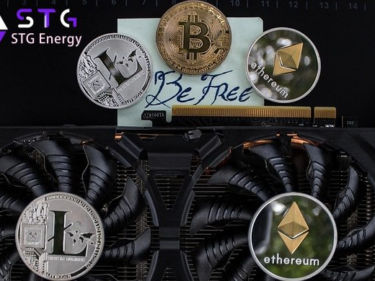Will Traditional Games end up Surrendering to Blockchain Technology?

The growth of NFTs has significantly impacted the popularity of blockchain technology. While there was a huge adoption of cryptocurrencies, such as Ethereum and Bitcoin, in recent years, 2021 brought a new addition to the mix in the form of NFTs.
Non-fungible tokens are the newer token standard and it has helped demonstrate new applications of the technology other than the basic use cases. NFT tokens have redefined the ownership of digital assets and the way people play and interact with games.
Gamers can now explore the best blockchain games and instead of paying to play games, they can now play to earn money. Without a doubt, blockchain games are becoming more popular and seem to be overshadowing traditional games. So, the question is – will traditional games end up surrendering to blockchain technology?
Evolution of Play-to-Earn Games
The rise in blockchain technology and by extension, non-fungible tokens, has changed the gaming industry. Players now have access to play-to-earn mechanisms that let them earn revenue through various in-game activities. This is a paradigm shift from the traditional pay-to-play model.
So, what is play-to-earn? Play-to-earn games are a type of blockchain-based game that allows players to earn special NFTs, which can be traded for real money. Blockchain gaming puts the total control of digital assets into the hands of players. Players can lose access to collectible items in traditional games when the server goes down.
Blockchain gaming, on the other hand, enables gamers to exchange digital items, sell them or use them across various games. According to reports, play-to-earn games generate billions of dollars via transactions in NFTs.
Benefits and Disadvantages of Blockchain Games
Blockchain games offer digital assets that players can buy, collect, and sell. These assets are housed on a central server until they are sold to players. After this, they become decentralized and stored on a blockchain. Here are the benefits and disadvantages of Blockchain games.
Benefits:
- A decentralized game platform levels the playing ground for everyone. Anybody can invest time and effort to earn digital assets in games without losing their assets.
- It is almost impossible to scam NFT holders of their tokens stored on a public blockchain.
- Decentralized games offer players the freedom to play and own assets without restrictions because these games are community-driven and players are responsible for them.
- Availability of ongoing revenue stream for players that earn money by completing quests.
- It also offers developers more leverage to be creative and access support from platforms to launch their game platforms.
Disadvantages:
- The speed of transacting on the blockchain is relatively slow because blockchains cannot quickly process transactions like the traditional central server.
- Users sometimes have to pay transaction fees to trade or sell digital items.
Traditional Games vs. Blockchain Games
Blockchain games are quite different from traditional games. Unlike traditional games, blockchain games enable players to track and analyze their actions and the moves of opponents. Additionally, the decentralized mechanics of blockchain games boosts security and freedom for both game developers and players.
Developers have access to an innovative ecosystem where they can create and offer more gaming products for players to enjoy. Gamers are also prone to losing all they have worked for because of the centralized nature of traditional games. However, all game data in blockchain games are decentralized and stored permanently on the blockchain.
Conclusion
While traditional video games are still much in existence, blockchain gaming is gaining a competitive edge over it. This is majorly due to the play-to-earn nature of the game, where players can earn in-game assets. With innovation coming up in blockchain gaming, it is safe to say that the future is bright for this genre. However, the same cannot be said for traditional gaming.



